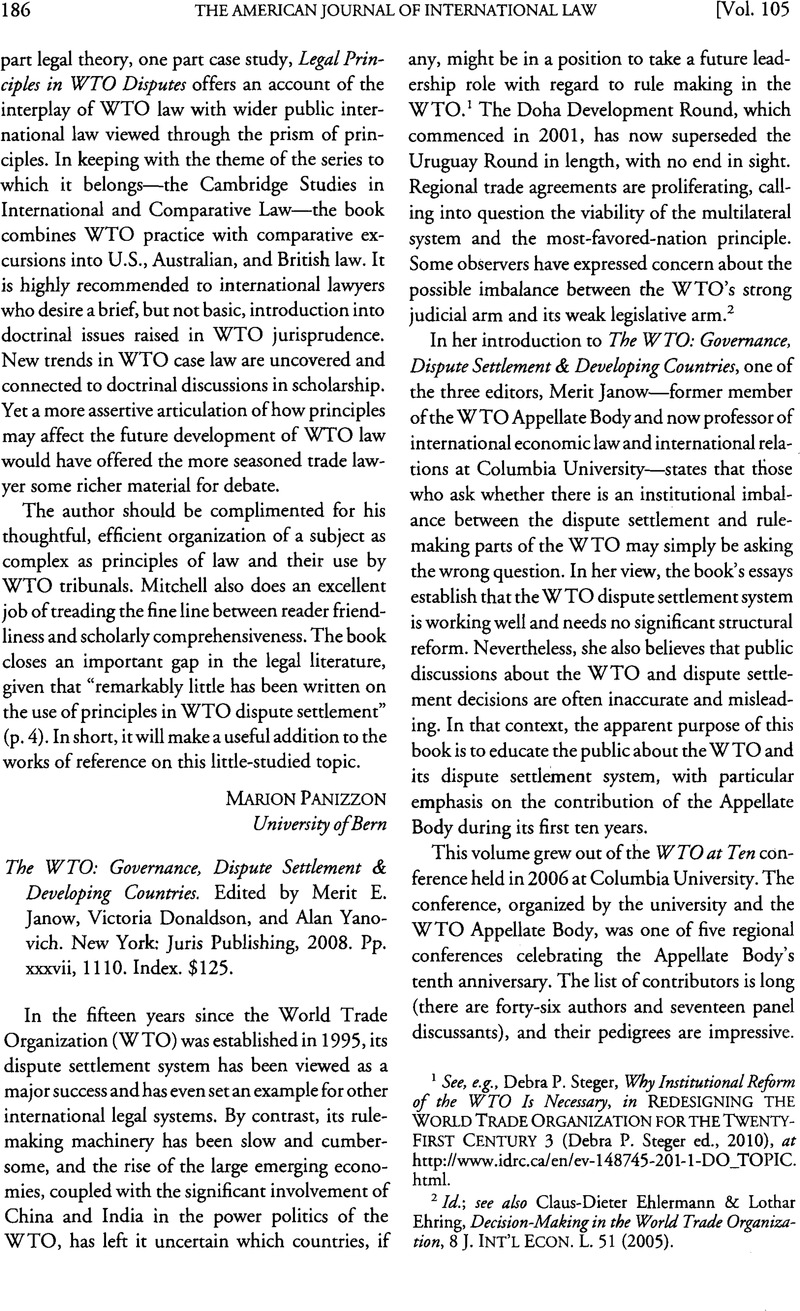No CrossRef data available.
Published online by Cambridge University Press: 02 March 2017

1 See, e.g., Steger, Debra P., Why Institutional Reform of the WTO Is Necessary, in Redesigning the World Trade Organization for the Twenty-first Century 3 (Steger, Debra P. ed., 2010), at http://www.idrc.ca/en/ev-148745–201–1-DOJTOPIC.html Google Scholar.
2 Id.; see also Claus-Dieter, Ehlermann & Ehring, Lothar, Decision-Making in the World Trade Organization, 8 J. Int’l Econ. L. 51 (2005)Google Scholar.
3 Sutherland, Peter, Bhagwati, Jagdish, Botchwey, Kwesi, Fitzgerald, Niall, Hamade, Koichi, Jackson, John H., Later, Celso, & Thierry De, Montbrial, The Future of the WTO: Addressing Institutional Challenges in the New Millennium (2004), at http://www.wto.org/english/thewto_e/10anniv_e/future_wto_e.htm Google Scholar.
4 Appellate Body Communication, European Communities—Measures Affecting Asbestos and Asbestos-Containing Products, WT/DS135/9 (Nov. 8, 2000).
5 Davey notes in his essay that most WTO decisions are implemented eventually, and Bruce Wilson observes in his essay that, as of March 2006, in only 6 of 101 completed cases had WTO members requested and received authorization to suspend concessions for noncompliance.